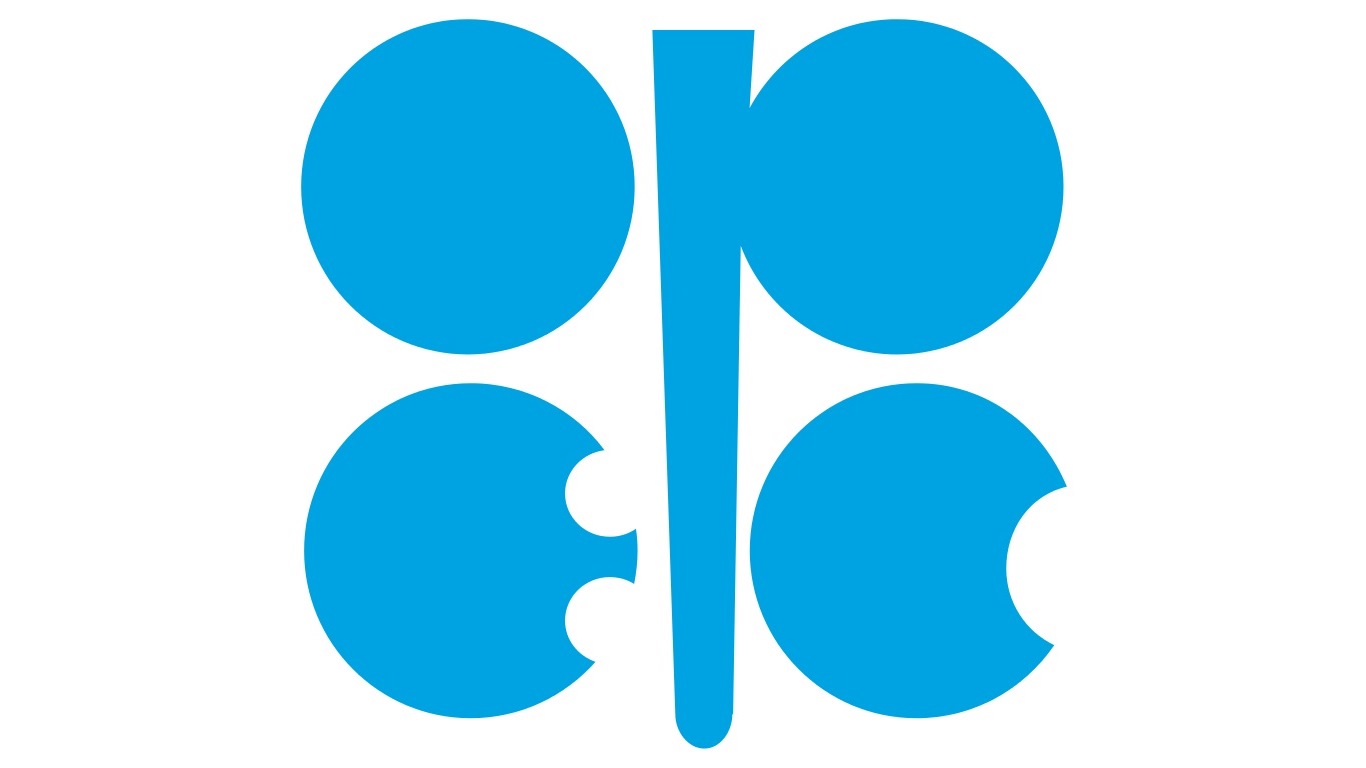Energy
What 15 Countries Are Members of OPEC, the World's Giant Oil Organization?

Published:
Last Updated:

OPEC, the Organization of Petroleum Exporting Countries, is the most powerful group in the world of crude exploration, production and shipment to other countries. It is made up of 15 nations, one of which will depart soon. Its leverage on world oil prices, once nearly complete, has recently been challenged by outside countries, particularly the United States, which has the world’s largest shale oil deposits.
OPEC first became well known in the United States during the Arab Oil Embargo of 1973 and 1974. As it withdrew supply from nations it believed supported Israel, American gas prices soared.
Several of the world’s largest oil producers are not members of OPEC. The largest of these in terms of oil reserves are Canada, Russia, the United States and China. Russia may side with OPEC to cut global oil production in the hopes of raising prices.
Saudi Arabia is OPEC’s de facto leader. The Arabian kingdom ranks 19th in the world in gross domestic product at $683 billion, according to the International Monetary Fund. One of the five original founding members of OPEC when it was formed in 1960, it has the world’s second largest proven oil reserves at 266,455 million barrels, based on data collected by the U.S. Energy Information Administration.
The Islamic Republic of Iran is another founding member of OPEC. Its GDP is the 27th largest in the world at $431 billion. Its proven oil reserves, at 158,400 million barrels, rank it fourth in the world. It is currently under sanctions by the United States because of its development of nuclear military programs.
Iraq is another founder of OPEC. Its GDP ranks 54th in the world at $197 billion. Its proven oil reserves are 142,503 million barrels, which ranks it fifth in the world.
The fourth of the five nations that founded OPEC is Kuwait, with a GDP of $120 billion, which ranks it 60th in the world. Its proven oil reserves are 101,500 million, which puts it in sixth place
The last of the original founders of OPEC is Venezuela. The South American country leads the world’s nations in proven oil reserves at 300,878 million barrels. Its production has been curtailed by an unstable government. Its GDP is $210 billion, ranking at 51st in the world.
Qatar was the first country to join OPEC after the original five. It became a member in 1961 and ranks 14th in the world with proven oil reserves of 25,244 million barrels. It ranks 51st in the world based on GDP of $166 billion. It recently announced it would leave OPEC because of disputes with its neighbors.
Libya, which ranks 98th in the world in terms of GDP at $31 billion, ranks ninth in proven oil reserves at 48,000 million.
The United Arab Emirates joined in 1967. Its GDP ranks 30th in the world at $377 billion. Its proven oil reserves are 97,800 million barrels, which ranks it seventh.
Algeria joined in 1969. Its GDP ranks 55th in the world at $178 billion. Its proven oil reserves are 12,200 million barrels, which ranks it 16th in the world.
Nigeria joined in 1971. Its GDP at $376 billion ranks it 31st among all nations. Its proven oil reserves, at 37,062 million barrels, rank it 10th in the world.
The Republic of Ecuador ranks 63th in the world based on GDP of $120 billion. It ranks 18th in the world with proven reserves of 8,273 million barrels.
Gabon joined in 1975. Its GDP ranks 121st in the world at $14 billion. Its proven oil reserves, at 2,000 million barrels, rank it 35th in the world.
Angola joined in 2007. Its ranks 58th in the world based on GDP of $124 billion, and its proven oil reserves rank it 18th, with 8,273 million barrels.
Equatorial Guinea joined in 2017. It ranks 135th in the world with GDP of $10 billion. It has proven oil reserves of 1,100 million, which puts it 39th.
The Democratic Republic of the Congo is the most recent country in OPEC, joining earlier this year. Its GDP is 89th in the world at $41 billion. Its proven oil reserves rank it 37th in the world with 1,600 million barrels.
Start by taking a quick retirement quiz from SmartAsset that will match you with up to 3 financial advisors that serve your area and beyond in 5 minutes, or less.
Each advisor has been vetted by SmartAsset and is held to a fiduciary standard to act in your best interests.
Here’s how it works:
1. Answer SmartAsset advisor match quiz
2. Review your pre-screened matches at your leisure. Check out the advisors’ profiles.
3. Speak with advisors at no cost to you. Have an introductory call on the phone or introduction in person and choose whom to work with in the future
Get started right here.
Thank you for reading! Have some feedback for us?
Contact the 24/7 Wall St. editorial team.